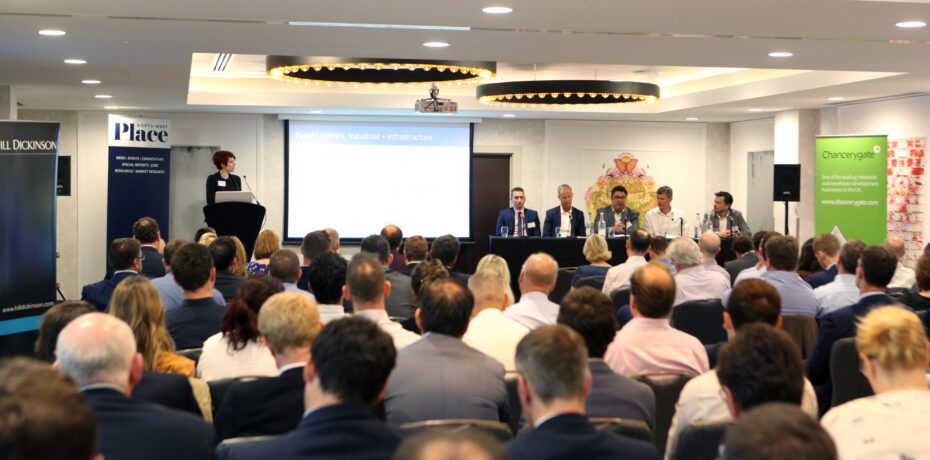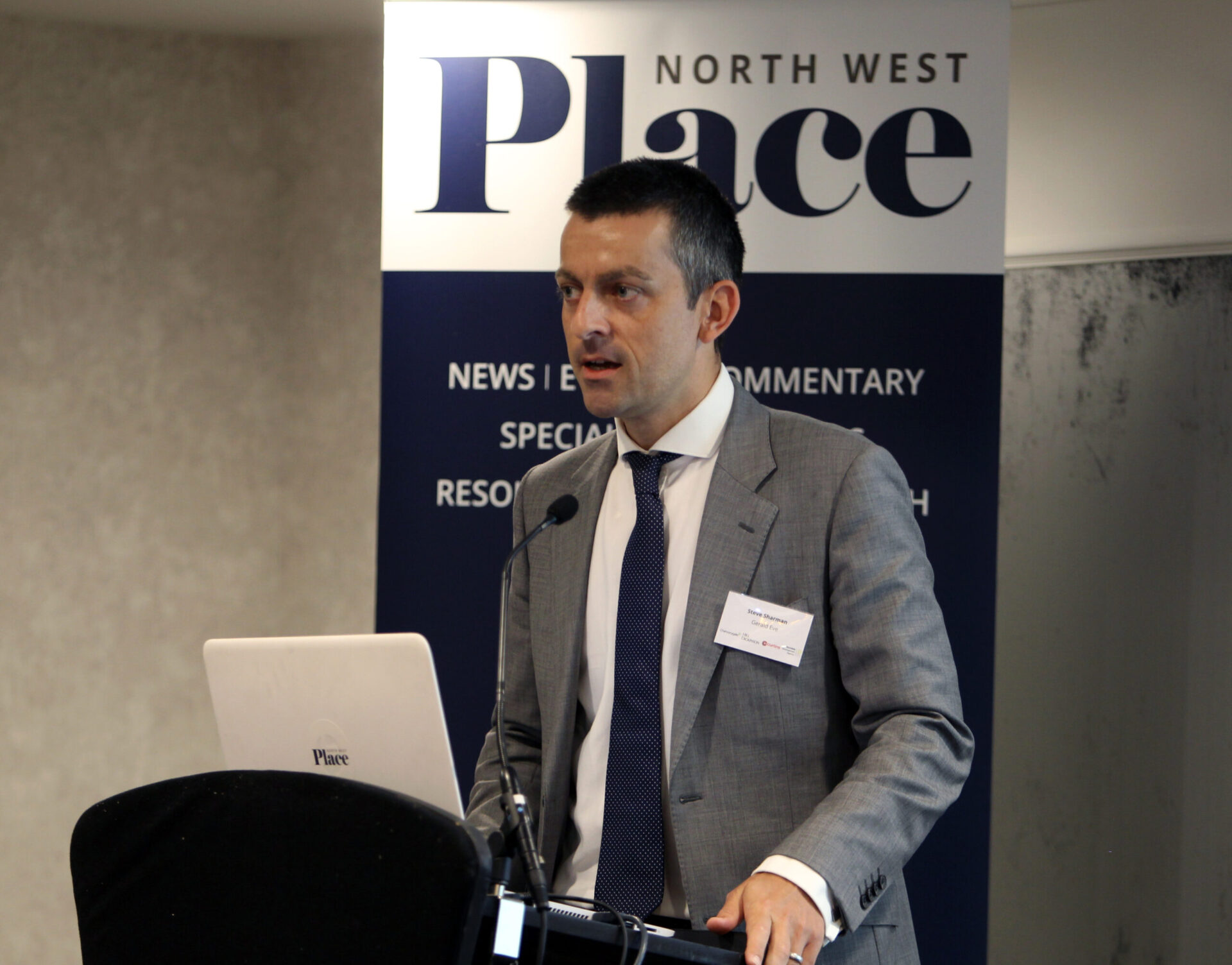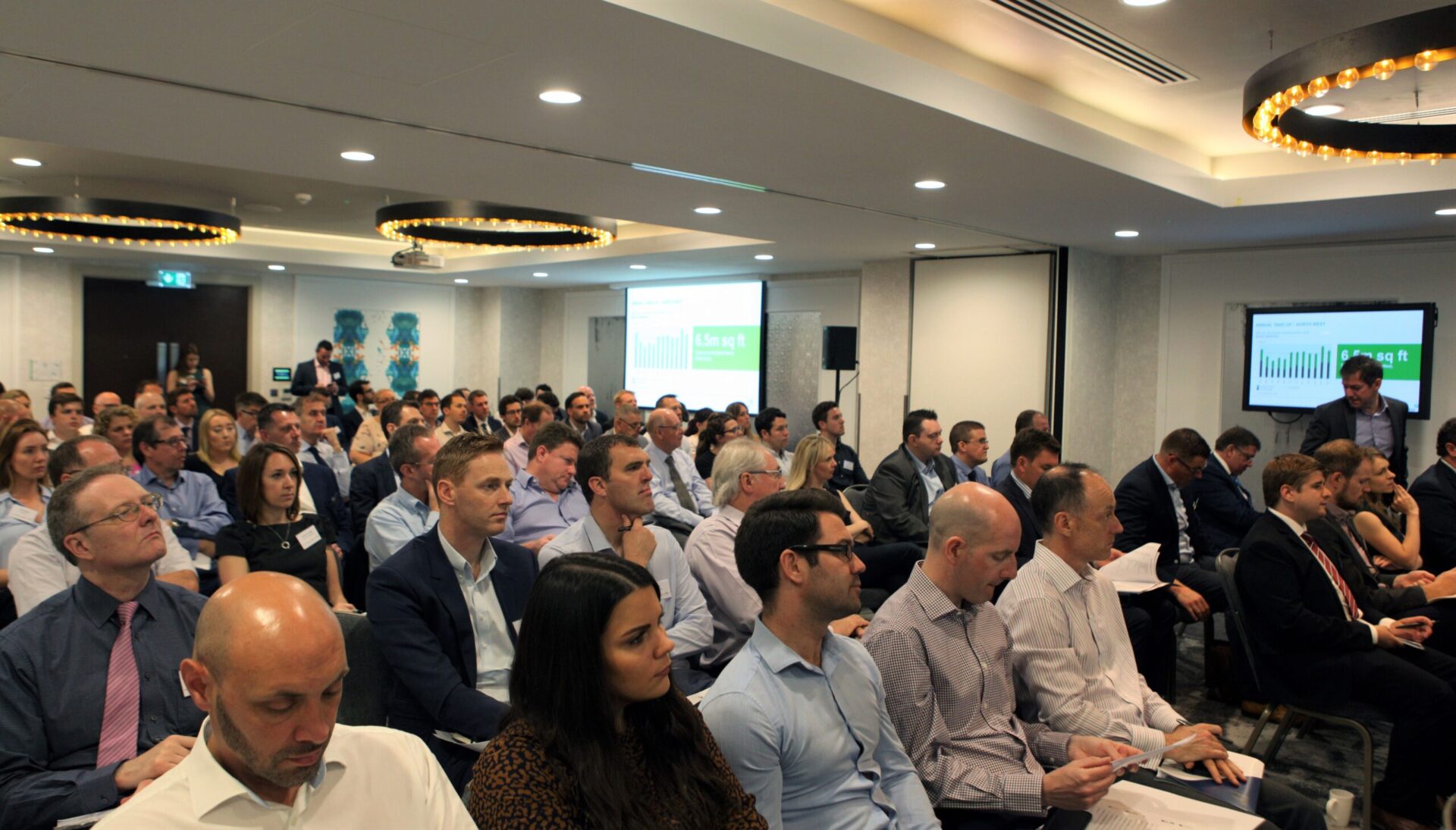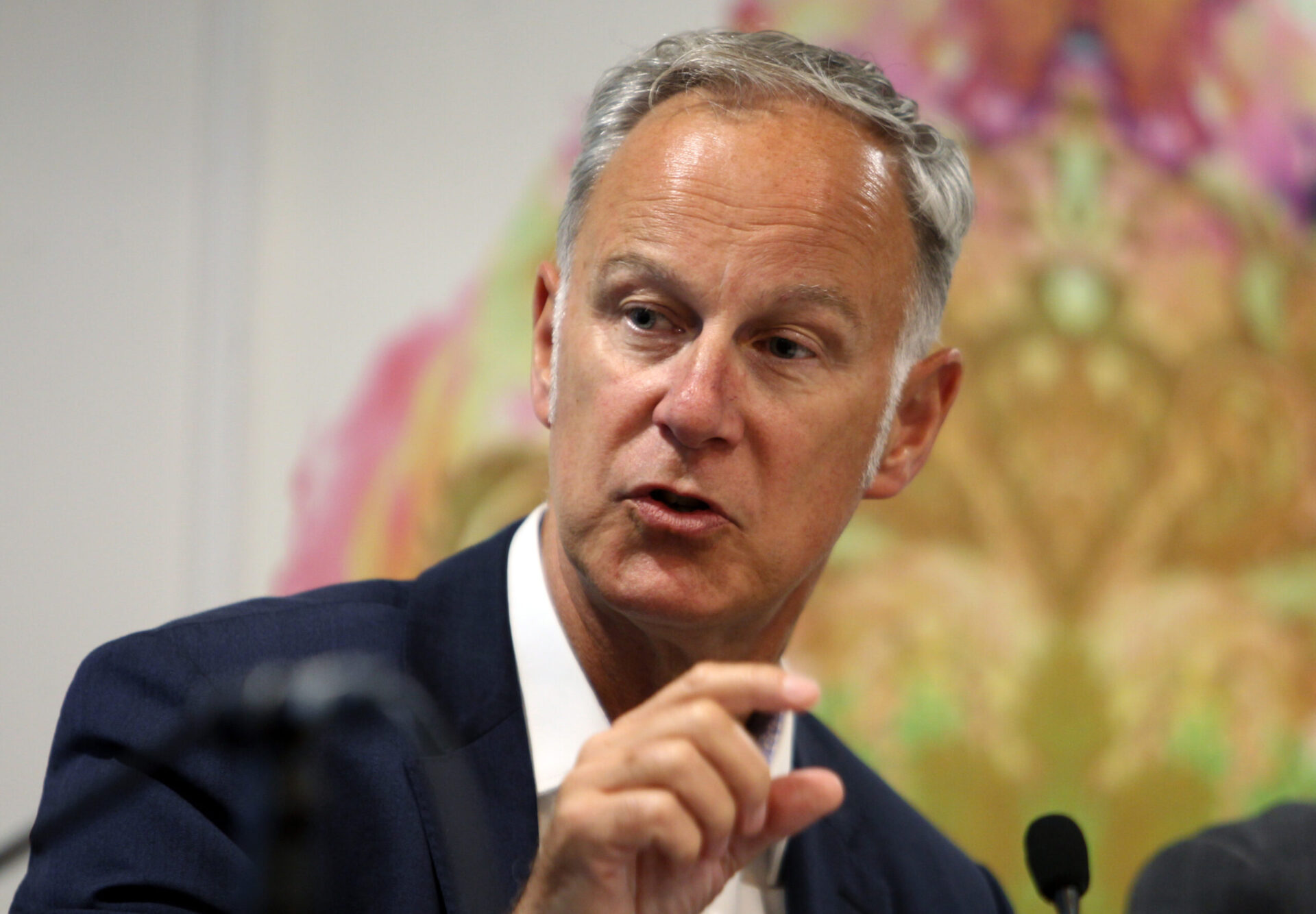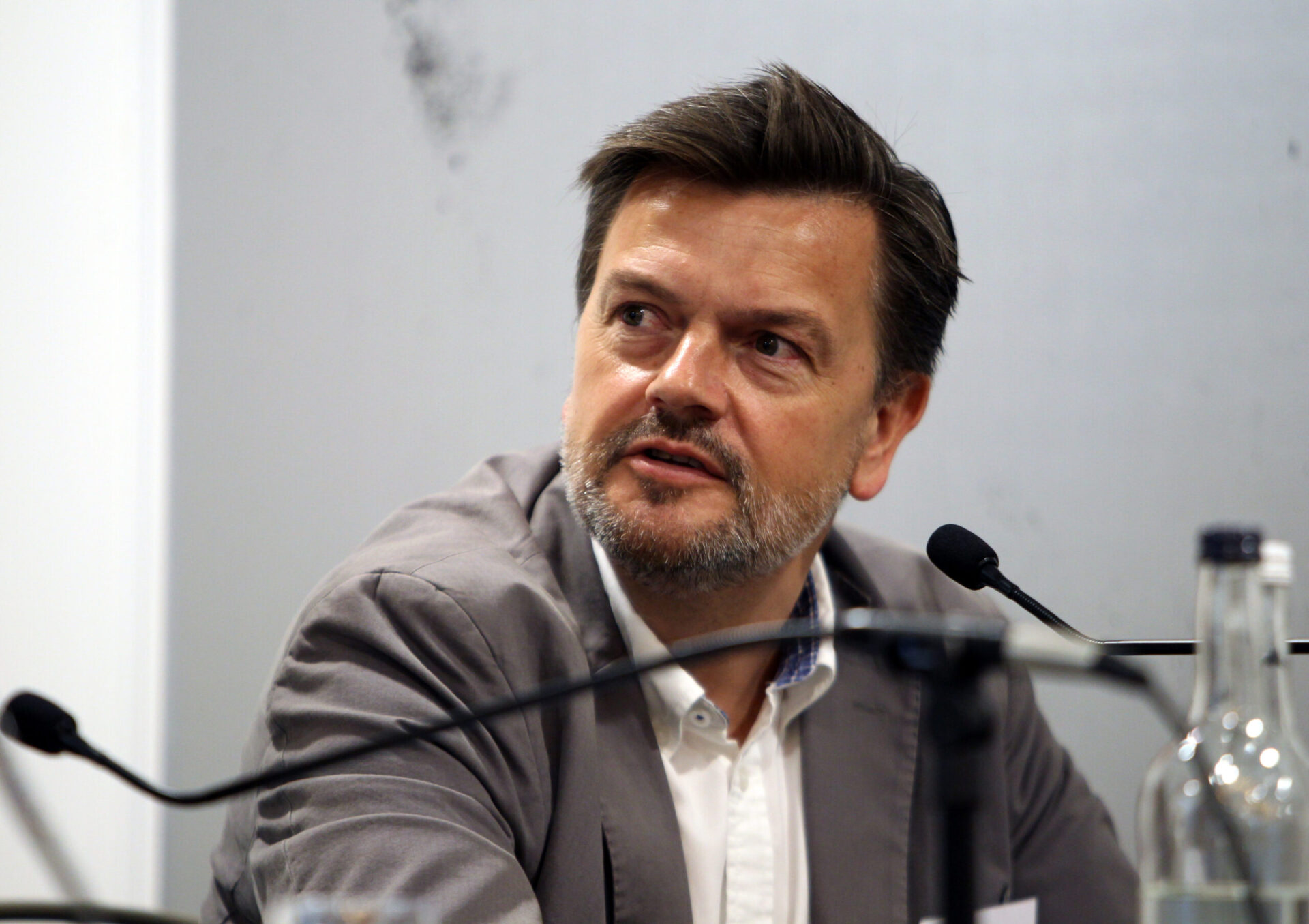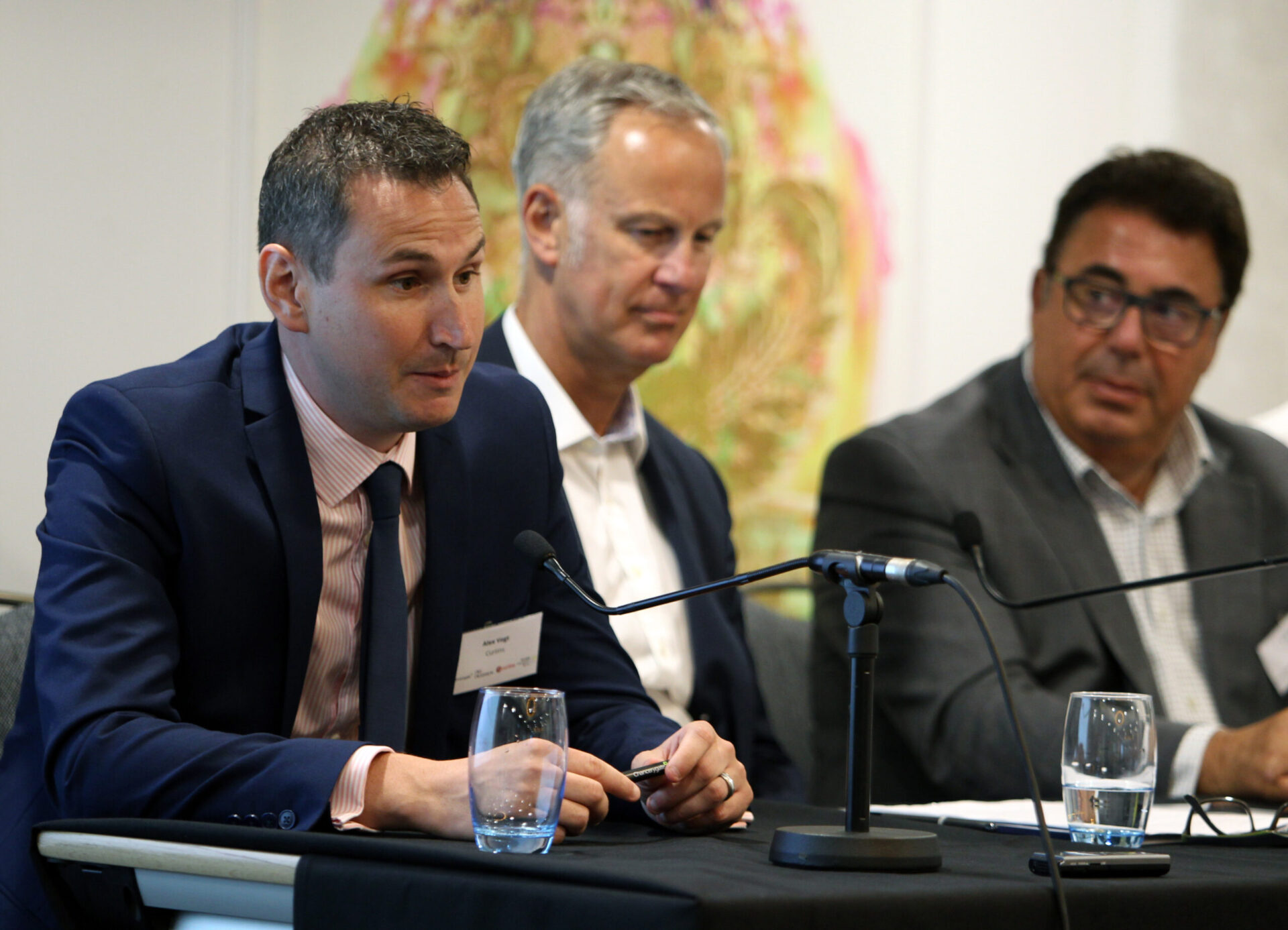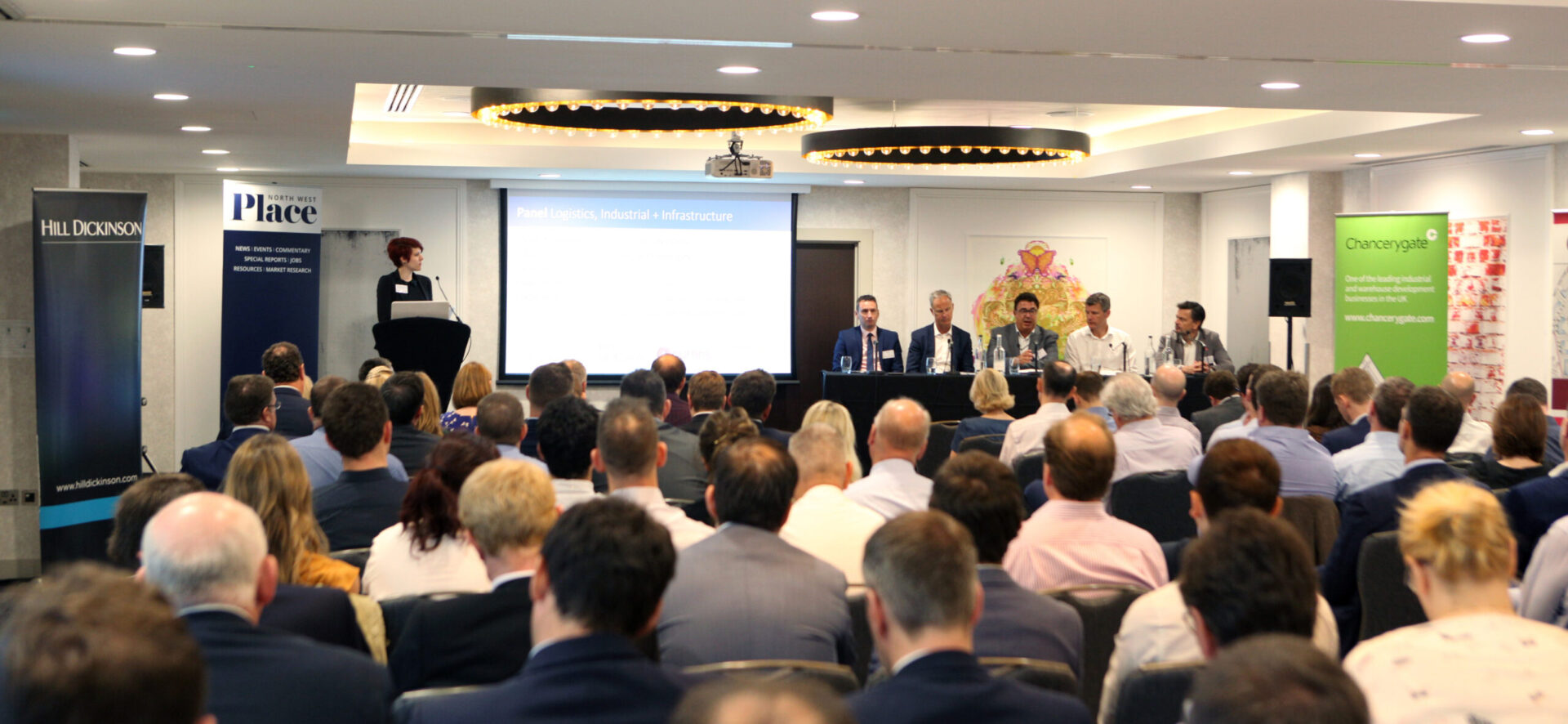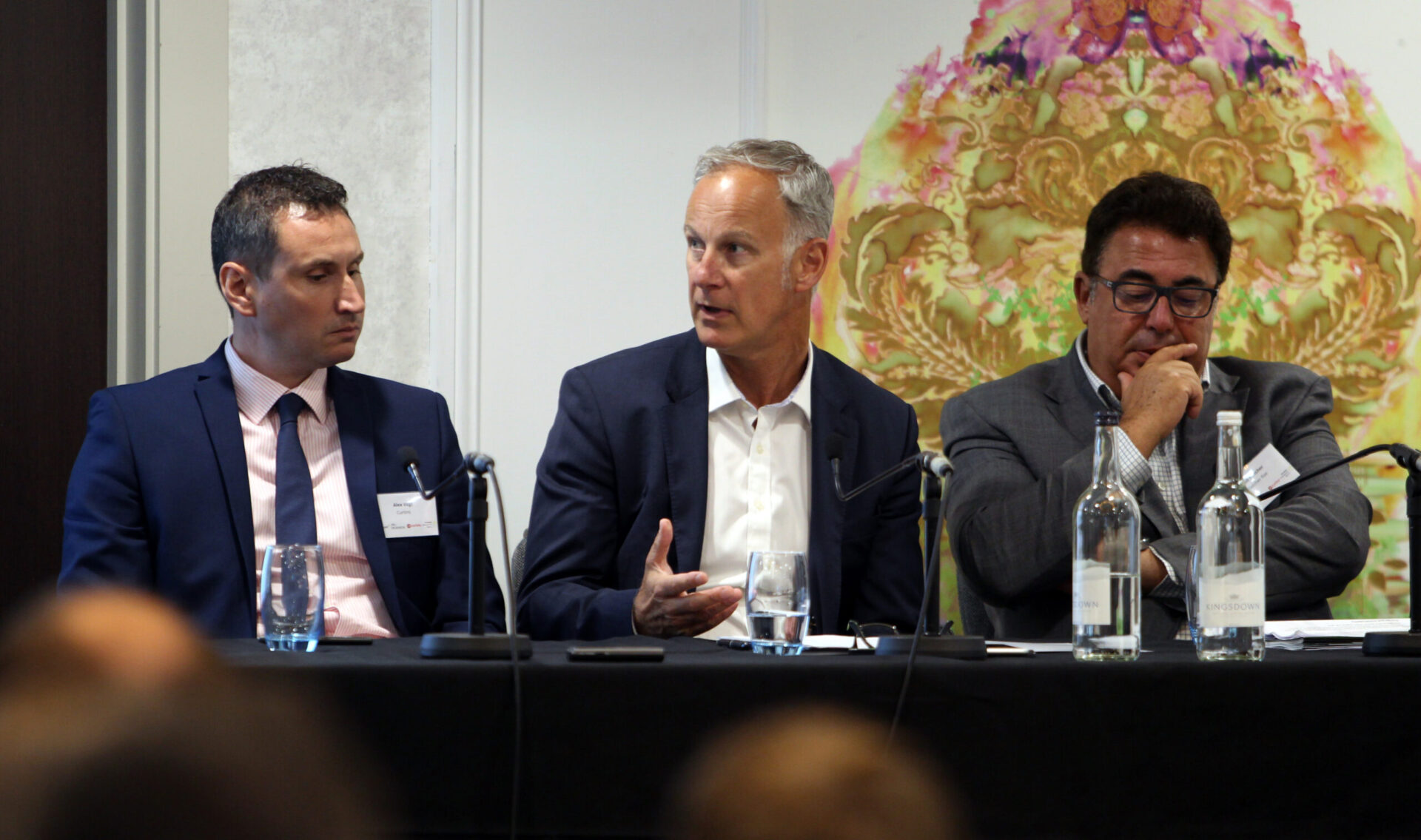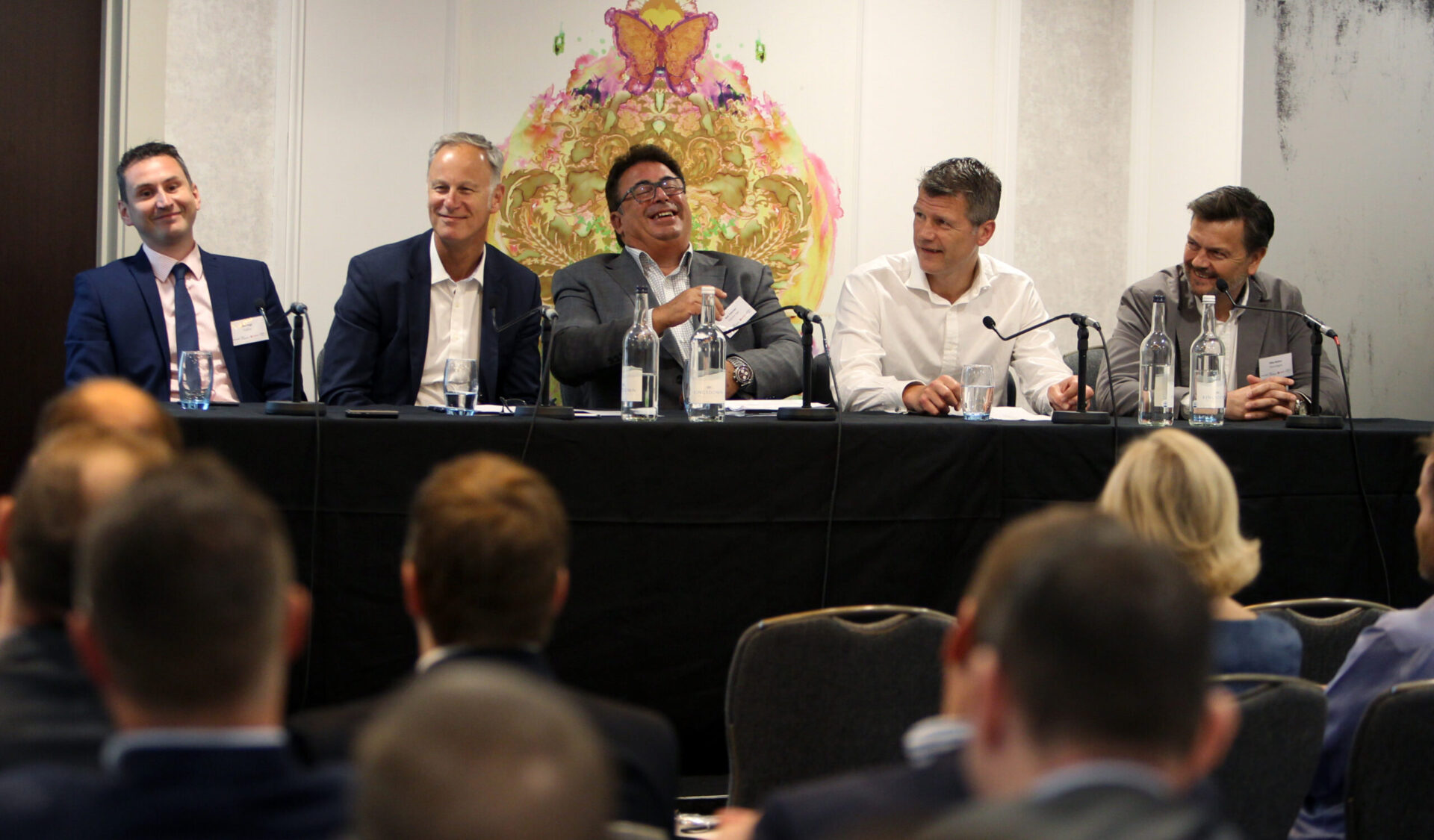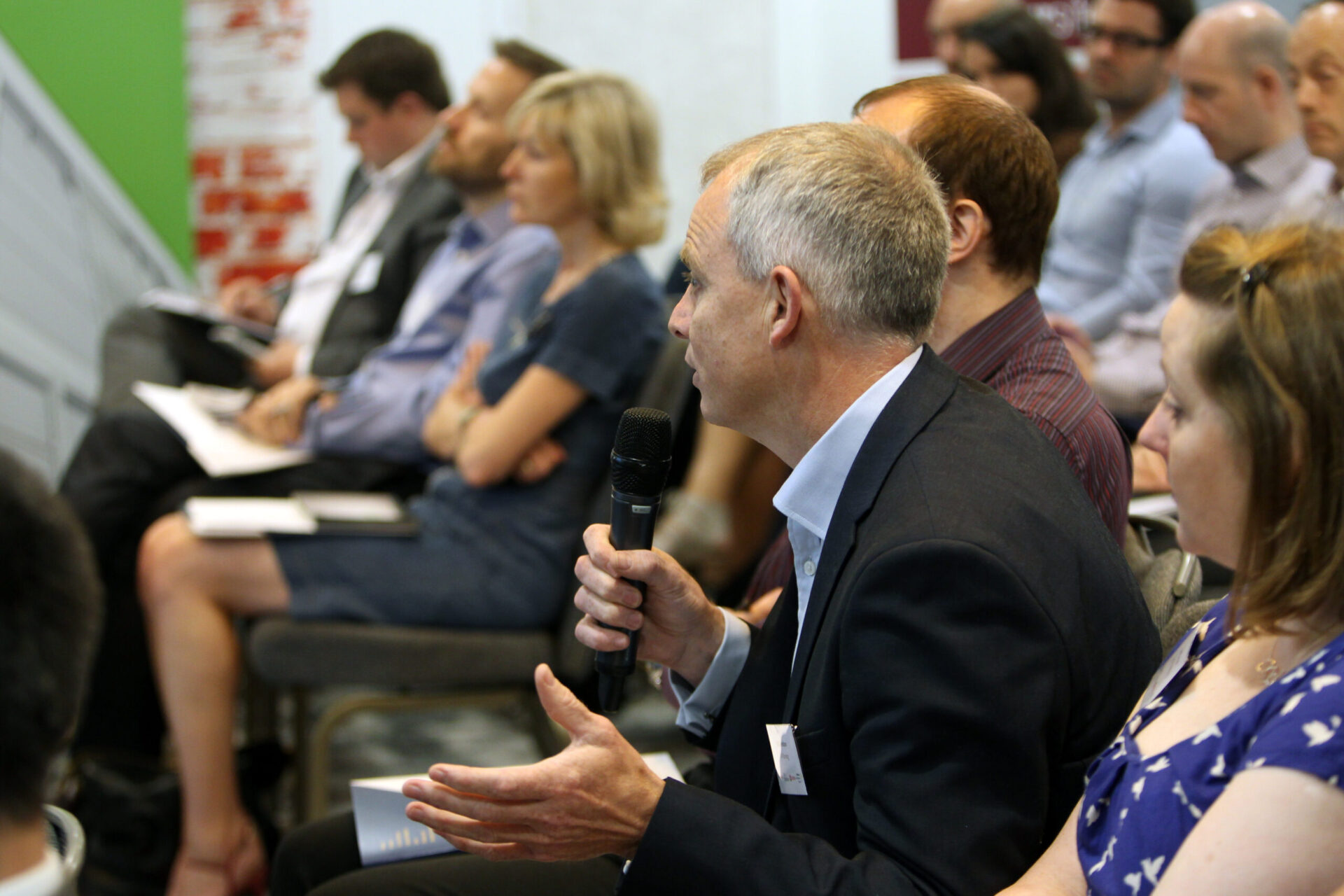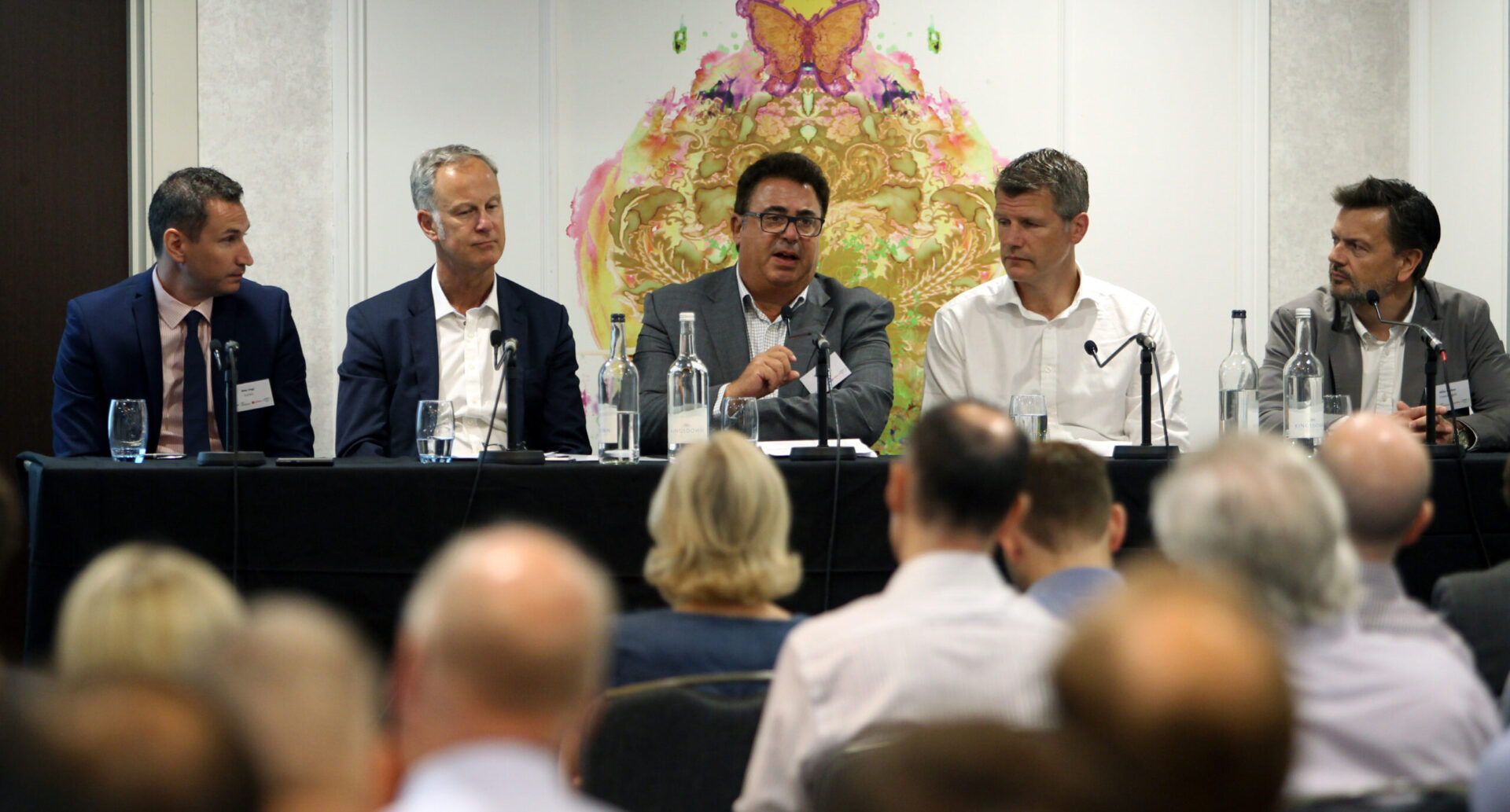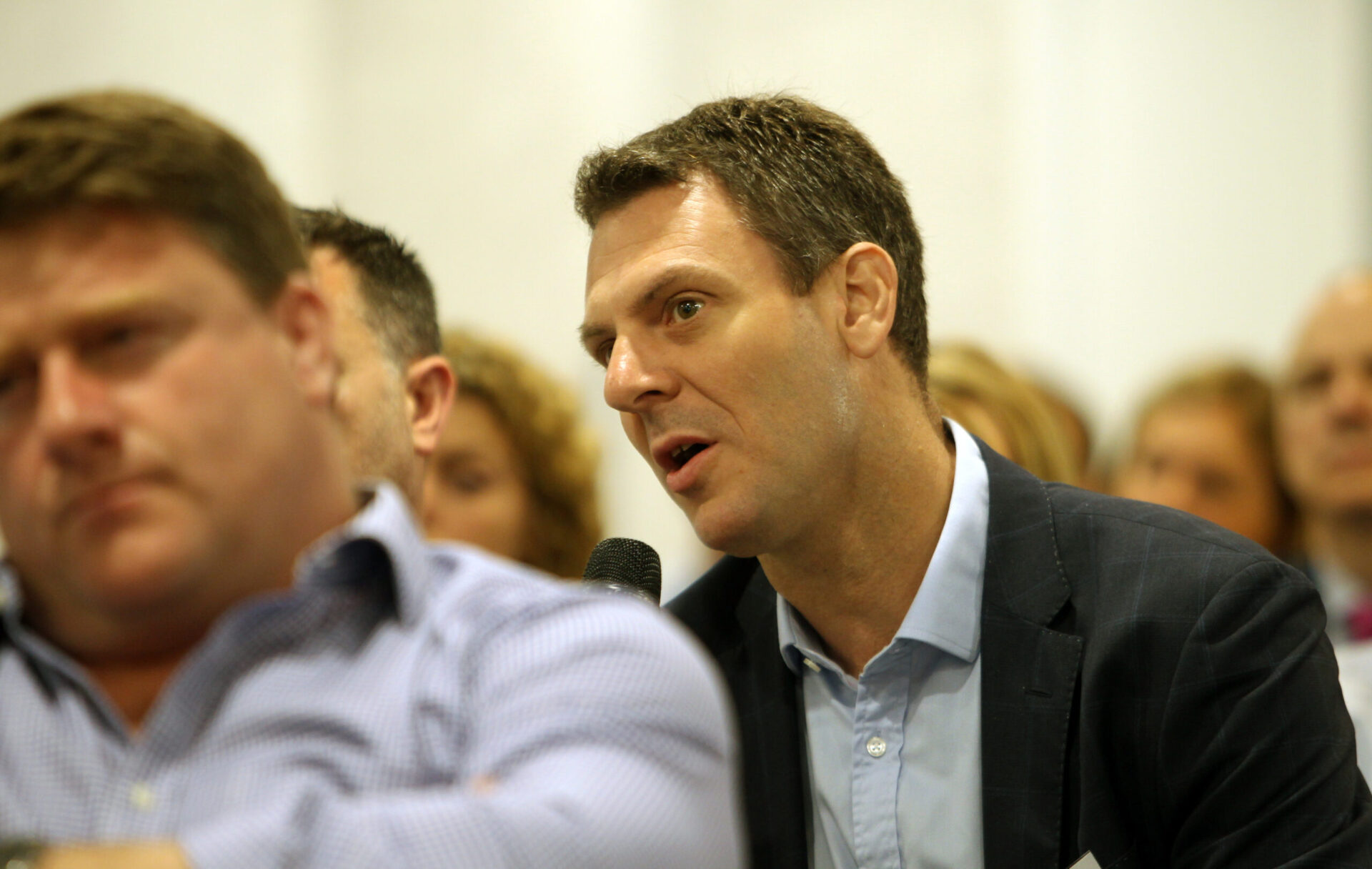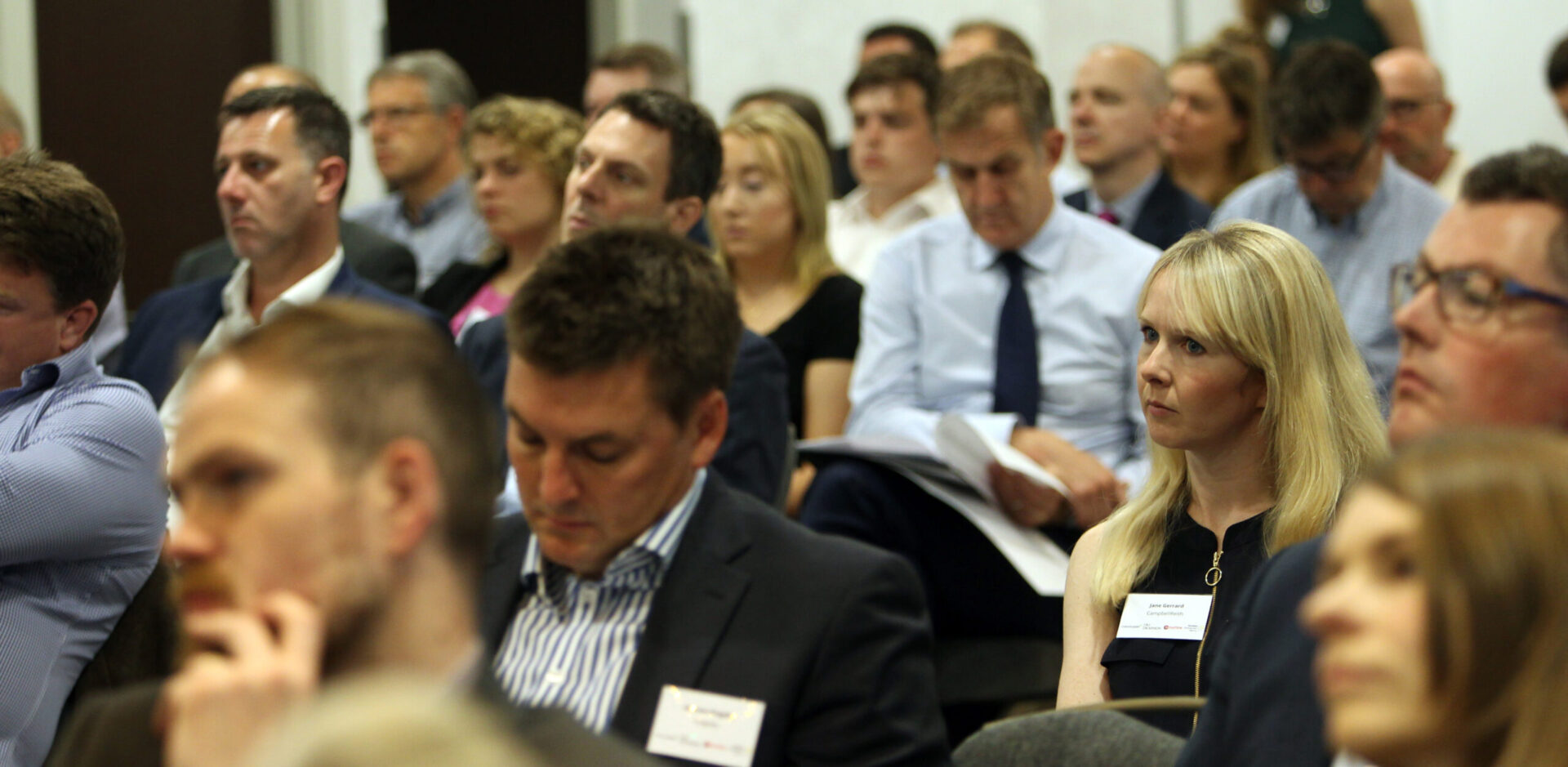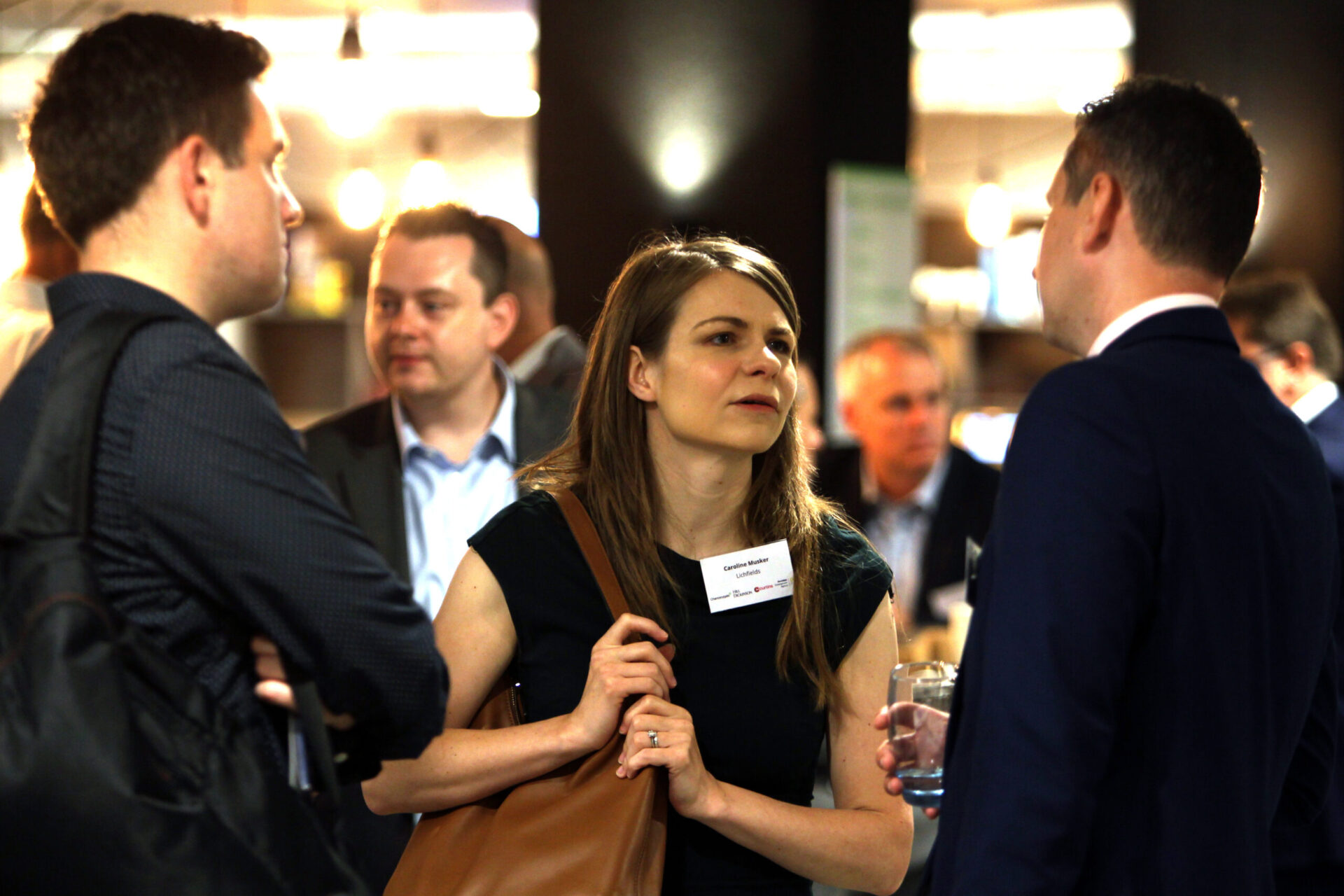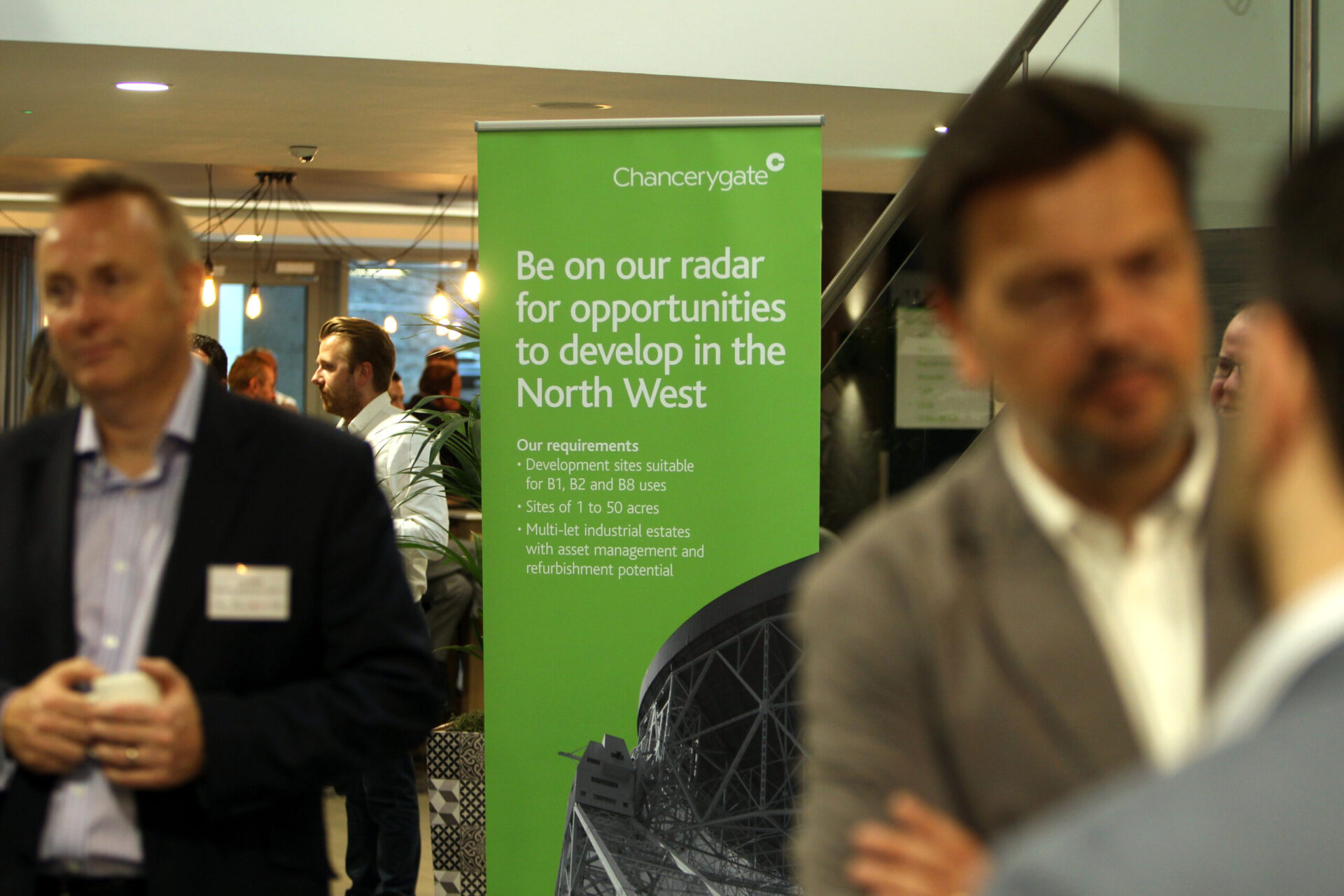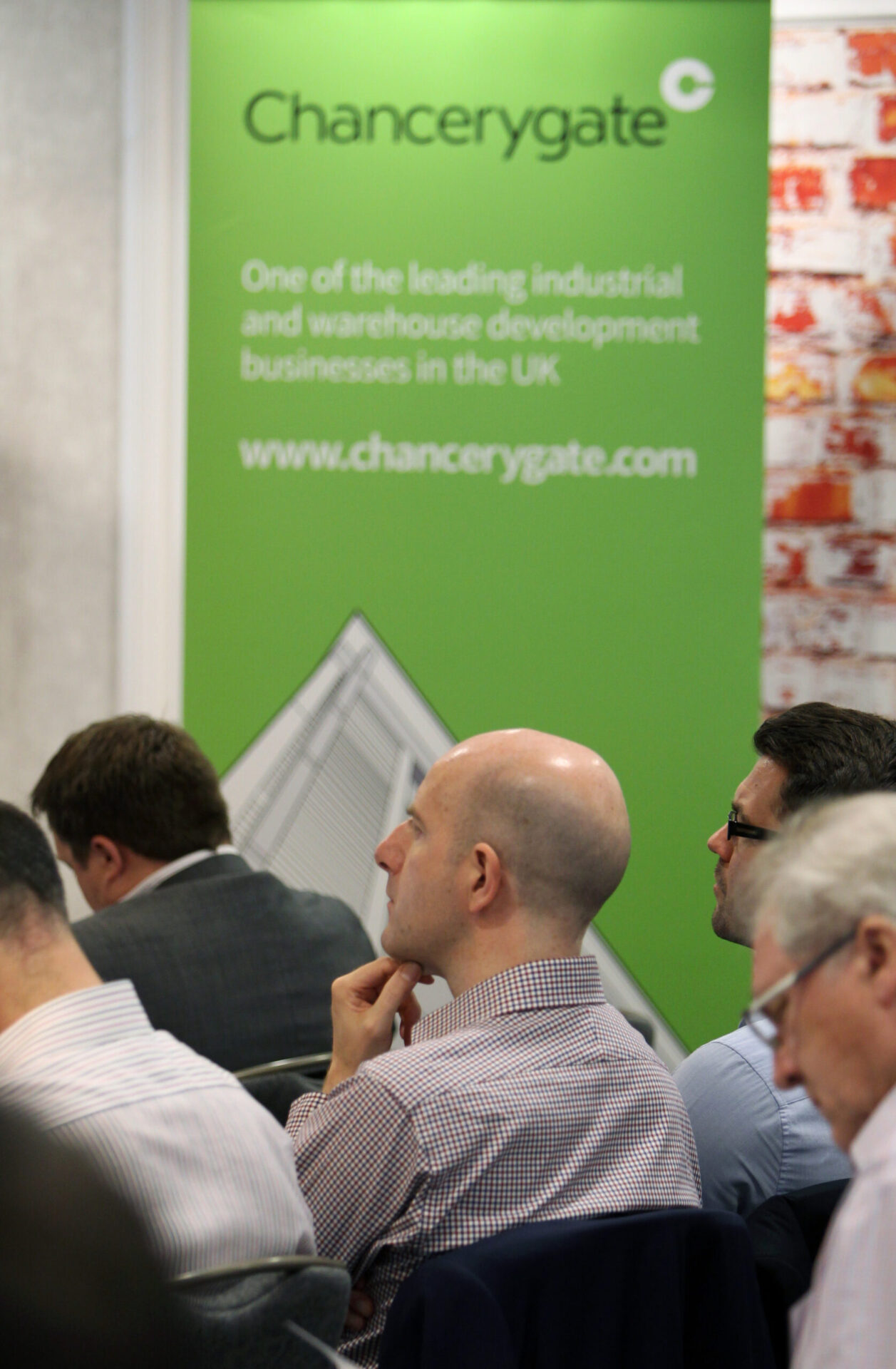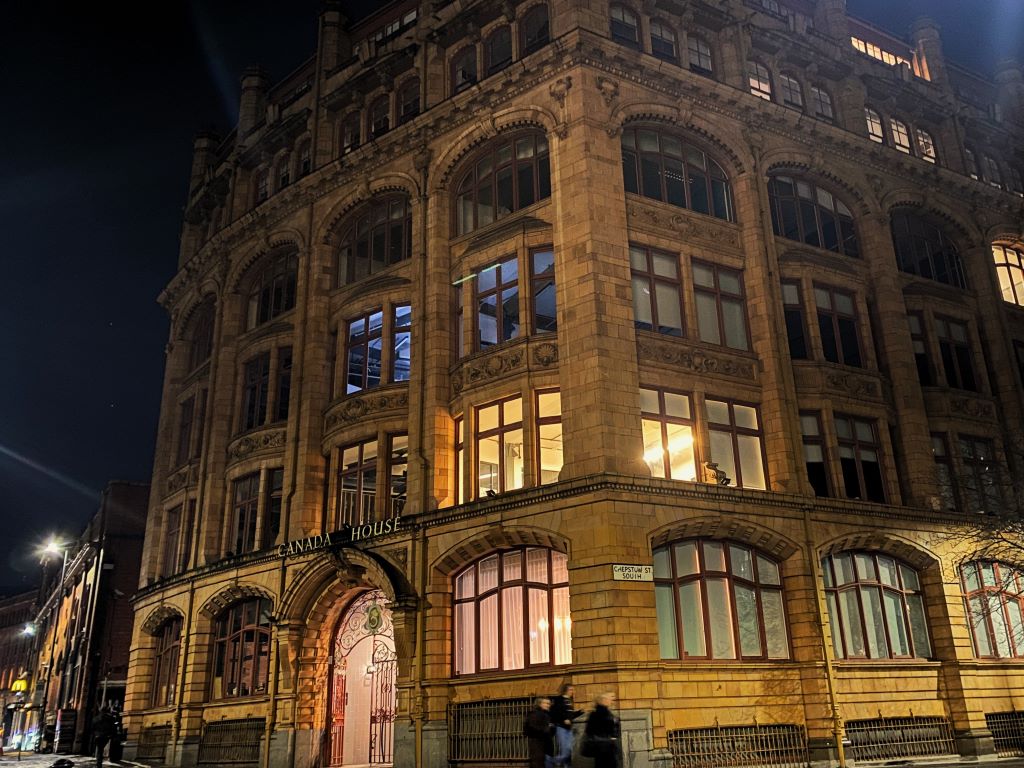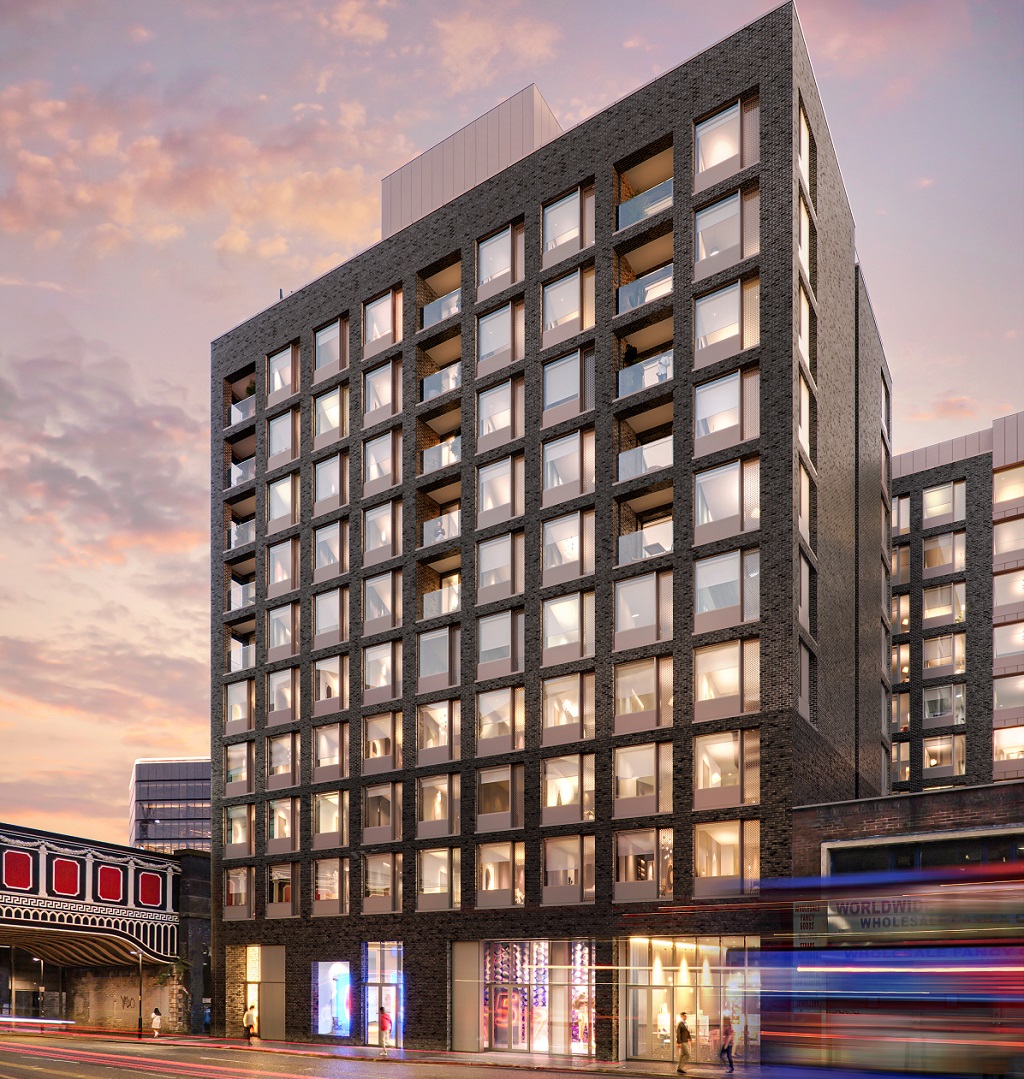Event Summary
SUMMARY | Logistics, Industrial + Infrastructure
The rise of online retail is fundamentally changing the logistics and industrial sector, according to the panel of industry experts at Place North West’s annual market briefing.
See below for gallery + presentation
 Around 100 delegates attended the event in Manchester city centre, which was sponsored by Chancerygate, Hill Dickinson, Curtins and Rochdale Development Agency.
Around 100 delegates attended the event in Manchester city centre, which was sponsored by Chancerygate, Hill Dickinson, Curtins and Rochdale Development Agency.
The event got underway with a presentation from Steve Sharman, partner at Gerald Eve’s research team, who provided an overview of market trends and take-up in the North West. A panel discussion followed featuring Steve Rumbelow, chief executive of Rochdale Council; Mike Walker, development director at Chancerygate; Alex Vogt, technical director at Curtins; Bob Fletcher, managing director of Fletcher Rae; and Jason Print, head of industrial agency, Gerald Eve’s Manchester office.
Market performing well
- Sharman told delegates that the market in the North West was performing well, with £424m of investment in the sector and 6.5m sq ft of take-up last year
- The panel agreed there was high demand for “good quality, purpose built space,” with core areas of Bolton, Warrington and Rochdale all performing well
- 6m sq ft of speculative development space came on to the market last year across 13 developments, with less than 1m sq ft still available by April 2017
- Fletcher said these were “exciting times” for the industry, with Walker adding he was optimistic about the future for the sector. Rumblelow explained there were 50 logistics firms operating in Rochdale with employment in the industry twice the national average
Rise of the online retailers
- The panel agreed the rise of online retailing had “fundamentally transformed” the market, with Walker telling delegates that all businesses operating out of industrial units were “deriving some business out of the internet”
- Sharman said internet retailers accounted for 26% of take-up last year, with Amazon committing to three buildings in 2016
- Print agreed that online retail would continue to drive the market, growing 16% last year and forecast to grow by another 14% this year
Changing locations and infrastructure
- With a predicted 44% increase in online retail sales over the next five years, the panel pointed to a shift in where occupiers wanted sites, with delivery centres moving closer to urban areas to reach increasingly demanding customers more quickly
- Vogt said the change was putting pressure on transport networks, with more vans and delivery vehicles on the roads, and road networks operating at between 98% and 100% capacity. He added that most delivery vehicles were static for 70% of the day and the majority didn’t carry a full load
- The panel agreed that more capital investment would be needed in infrastructure to support future logistic and industrial developments, and that investment in multi-modal sites that include rail and water links needed to be made based on future and not current demand
- Fletcher said the changing demands from customers was leading to huge shifts in thinking about supply chain with a trend towards huge “mega box” developments and “straight-to-last-mile facilities” that could cut out a whole tier of the supply chain and impact supermarkets
Shrinking supply
- Sharman said he expected supply would struggle to keep up with demand in 2017, with just 1.3m sq ft of development due to complete this year, and only one speculative scheme
- Print said he believed there was only a six-month supply of high quality units over 100,000 sq ft, with Walker adding that access to land was limited and planning was always difficult “even on brownfield sites”
- Rumbelow said planners in Rochdale were adopting a “business first approach” to try and find ways to bring schemes forward to help supply, adding that while the Greater Manchester Spatial Framework presented a great opportunity it was important to “sweat the pipeline” now to avoid a further gap in the supply of sites while waiting for those plans to kick in
- Vogt added that while the GMSF would bring forward strategic development sites, little thought had been given to the infrastructure that would be needed to deliver that extra supply
- Delegates heard that rental growth was expected to be 2.4% across the region for the next five years, but supply and demand imbalance could see this rise in some areas
Investors
- The panel told delegates that Manchester’s status as the UK’s second city made investing in the North West attractive to investors looking outside of London
- Walker said there was “a weight of money” to invest in industrial sites, with the majority looking for “up and built” investments, adding that Chancerygate had sold its Mercury Park development at Trafford Park for £8m
- Sharman added there was global investment interest in the region
- The panel felt investment in speculative development was cooling, with Rumbelow saying of the 750,000 sq ft of speculative sites in Rochdale, over half had received some support from the local authority to share risk
New Technology
- The panel agreed that the drop off in speculative developments was linked to rapidly changing technology making it hard to predict the future needs of internet retailers
- The sector has become much more sophisticated due to technology according to Fletcher, who added that the current stock could not accommodated the modifications that occupants were demanding
- Vogt said electric cars, HGV and even drones could play a big in freeing up capacity on the transport network in the future
- The panel agreed that energy would be a problem for the sector going forward. “What used to power an entire site, can now only power one building,” explained Print. Building sub-stations to power sites would be expensive and put developments at risk argued Fletcher
To view Steve Sharman’s presentation on Slideshare, click here
Click any image below to launch gallery
- Steve Sharman, partner at Gerald Eve, gave an overview of the market
- Steve Rumbelow, chief executive of Rochdale Council
- Mike Walker, development director at Chancerygate
- Bob Fletcher, managing director of Fletcher Rae
- Alex Vogt, director at Curtins
- Event was chaired by Jessica Middleton-Pugh, deputy editor, Place North West
- Jason Print, head of industrial agency at Gerald Eve in Manchester
- From left: Vogt, Rumbelow and Fletcher


